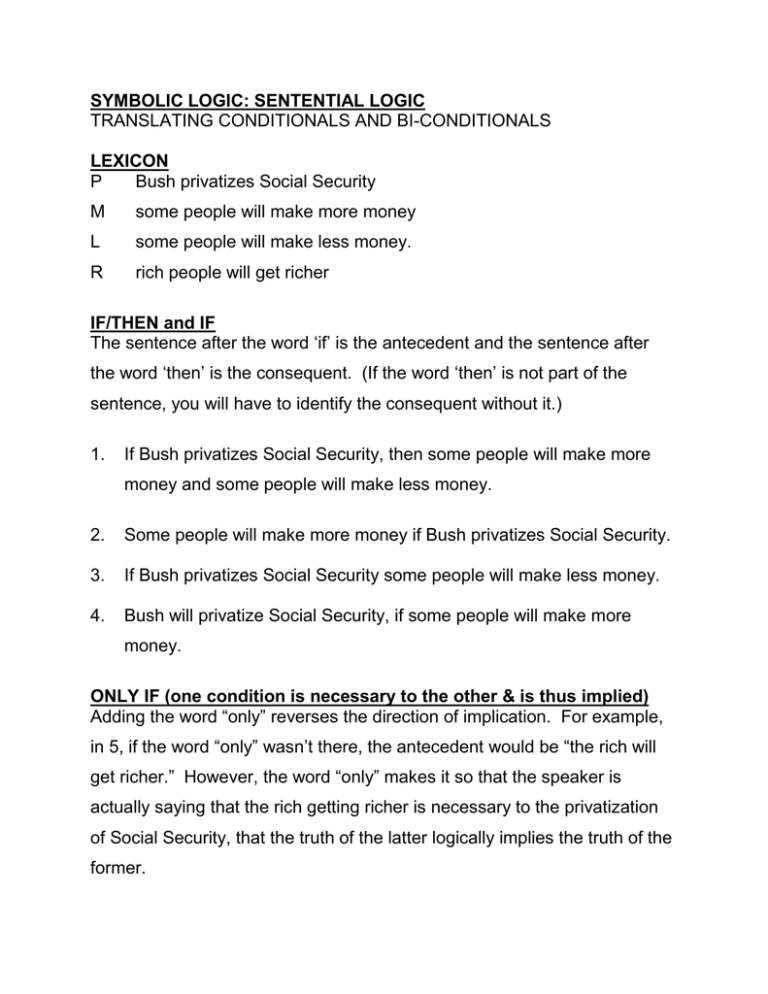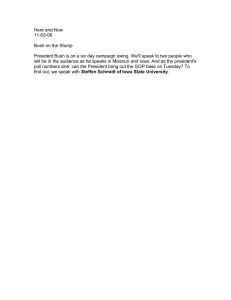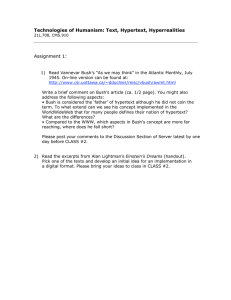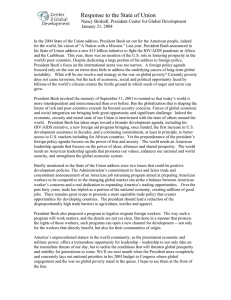Translating Conditionals and Biconditional
advertisement

SYMBOLIC LOGIC: SENTENTIAL LOGIC TRANSLATING CONDITIONALS AND BI-CONDITIONALS LEXICON P Bush privatizes Social Security M some people will make more money L some people will make less money. R rich people will get richer IF/THEN and IF The sentence after the word ‘if’ is the antecedent and the sentence after the word ‘then’ is the consequent. (If the word ‘then’ is not part of the sentence, you will have to identify the consequent without it.) 1. If Bush privatizes Social Security, then some people will make more money and some people will make less money. 2. Some people will make more money if Bush privatizes Social Security. 3. If Bush privatizes Social Security some people will make less money. 4. Bush will privatize Social Security, if some people will make more money. ONLY IF (one condition is necessary to the other & is thus implied) Adding the word “only” reverses the direction of implication. For example, in 5, if the word “only” wasn’t there, the antecedent would be “the rich will get richer.” However, the word “only” makes it so that the speaker is actually saying that the rich getting richer is necessary to the privatization of Social Security, that the truth of the latter logically implies the truth of the former. 5. Bush will privatize Social Security only if the rich will get richer. 6. The rich will only get richer if Bush privatizes Social Security. 7. The rich will get richer only if some people will make less money. IF AND ONLY IF (p q) or [(p q) & (q p)] The phrase “if and only if” combines an “if” assertion with an “only if” assertion, so that the relationship of logical implication exists both directions between two formulas. 8. Some people will make more money if and only if Bush privatizes Social Security. 9. Bush will privatize Social Security if and only if some people will make more money. 10. Bush will privatize Social Security if and only if some people will make more money and some people will make less money.



